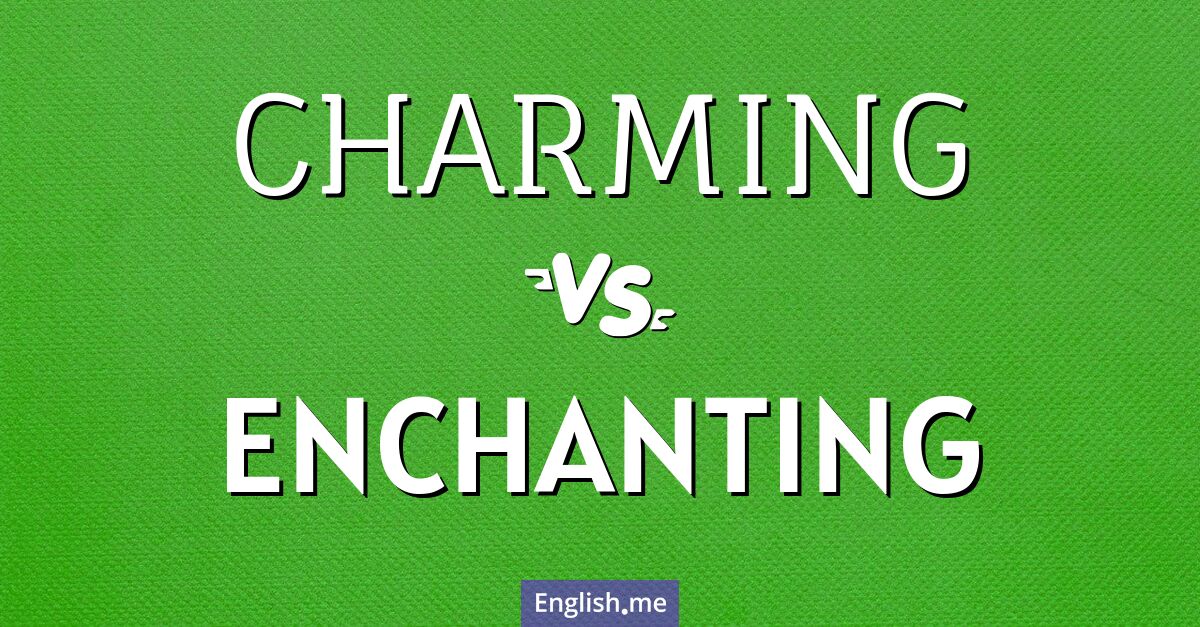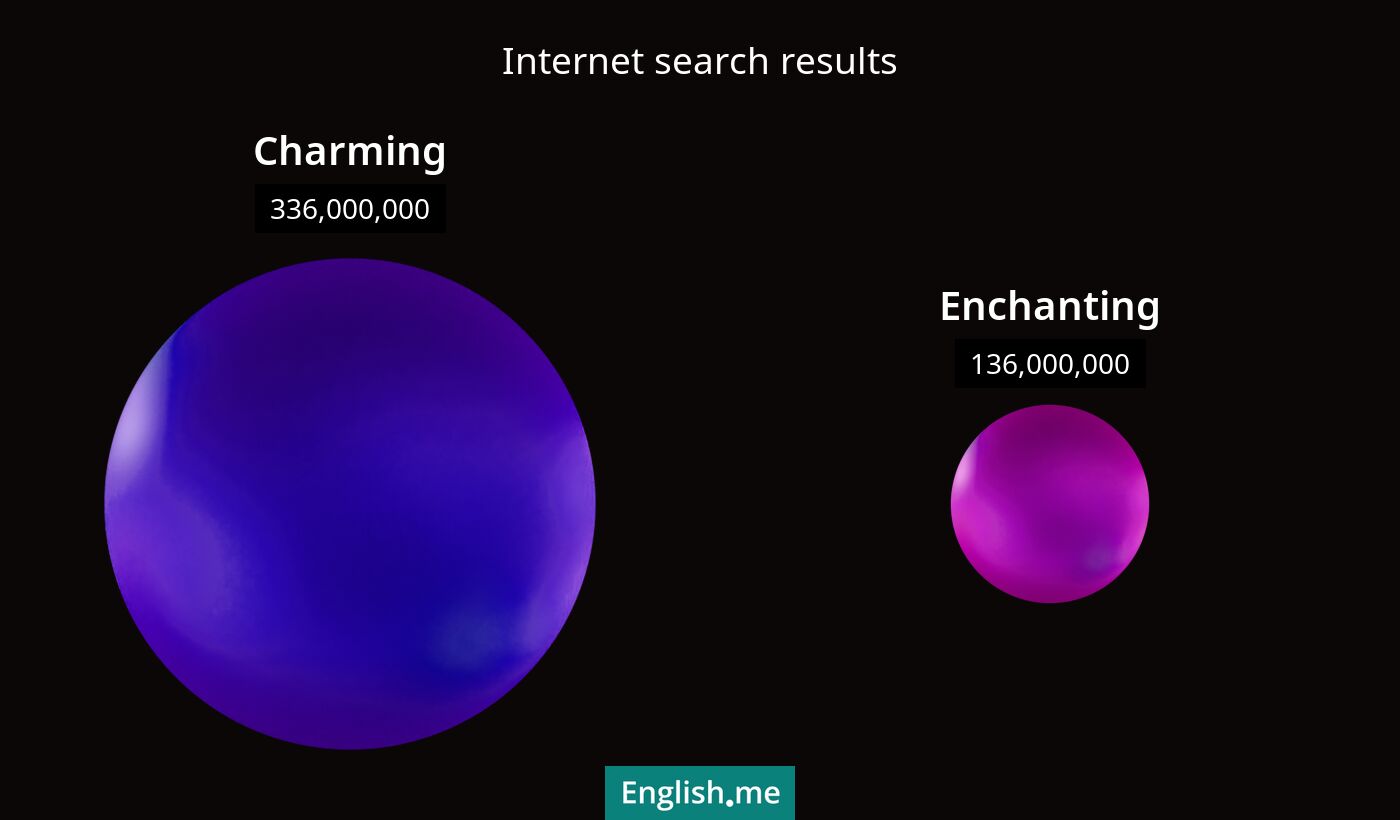"Charming" vs. "enchanting": a tale of delightful descriptions
Reviewed and edited by  Lloyd Cooper 11/11/2024, 22:27
Lloyd Cooper 11/11/2024, 22:27
English.me team member

 What is similar?
What is similar?
Both "charming" and "enchanting" describe something or someone that is attractive or appealing in a delightful way. They often convey a sense of pleasure and fascination.
 What is different?
What is different?
"Charming" is commonly used to describe someone or something that has a delightful, pleasant, and engaging manner or quality. It often implies a more subtle, personal, and social appeal. "Enchanting", on the other hand, suggests a sense of magical or spellbinding allure, often evoking a stronger or more captivating feeling as if casting a spell.
 Which one is more common?
Which one is more common?

 Examples of usage
Examples of usage
Charming- He gave a charming smile that made everyone feel at ease.
- The small village had a charming atmosphere, with its cobblestone streets and quaint houses.
- She was known for her charming personality that drew people to her effortlessly.
- The forest was enchanting, filled with the sound of birds and the rustle of leaves.
- Her enchanting voice captivated the entire audience.
- The view from the mountain was enchanting, as if taken from a fairy tale.

 English
English español
español française
française italiano
italiano deutsche
deutsche 日本語
日本語 polski
polski česky
česky svenska
svenska Türkçe
Türkçe Nederlands
Nederlands